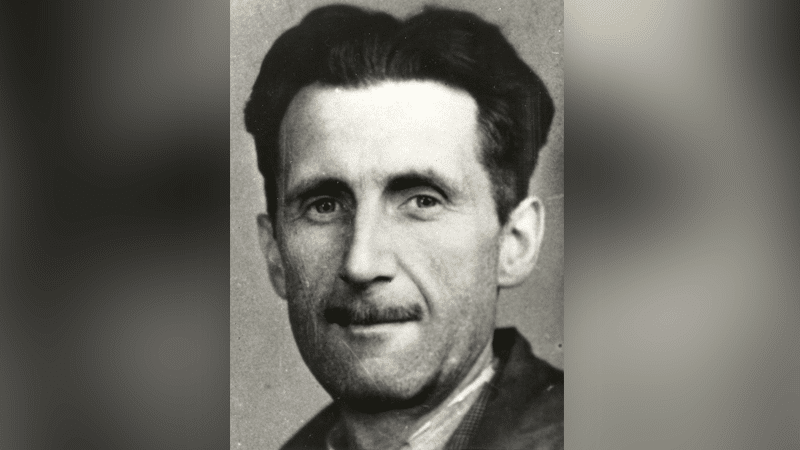George Orwell: Defender of freedom

The BBC has unveiled a statue of George Orwell, the journalist, author, thinker and political theorist.
On the wall behind his bronze effigy near Broadcasting House are his words: “If liberty means anything at all, it means the right to tell people what they do not want to hear.”
Orwell was a man who fought for freedom and truth throughout his life, and there is much we can learn from him as Christians and as citizens today.
Political language
In his seminal essay ‘Politics and the English language’, Orwell offers insight into the persuasive power of political language.
“Political language”, he writes, “is designed to make lies sound truthful and murder respectable, and to give an appearance of solidity to pure wind”.
Though published in 1946, this analysis rings clear and true today.
In our society, trans activists have invented terms such as ‘gender identity’ to imply that a person’s ‘true self’ can be divorced from fixed, biological reality.
Pro-abortion groups use phrases like ‘abortion care’ and ‘ending a pregnancy’ to sanitise abortion.
Their language is beguiling, lulling thousands of people into the impression that evil is actually good.
As Christians we must see through this political language and not allow the wool to be pulled over our eyes.
Open debate
Orwell also knew that language could be used as a blunt object to close down debate.
Even 80 years ago, people were using the term ‘fascist’ to silence those they disagreed with.
Orwell hated this kind of behaviour, lamenting the fact that intellectual honesty and balanced judgement “disappeared from the face of the earth” when somebody had an “axe to grind”.
Today, Christians and others with unpopular views are often shouted down as ‘bigots’ or ‘homophobes’ instead of being allowed to engage in thoughtful debate.
This is an indictment on a free society. Groups whose views are out of kilter with popular opinion should not be marginalised and slandered simply for putting across their point of view.
Debate should be open and courteous. Good debate elevates truth and has no interest in personal prejudice.
Free speech
Orwell highly valued free speech – even and especially for people with disagreeable ideas.
In The Lion and the Unicorn, he praised the fact that “newspapers and pamphlets abusing the Government, praising the enemy and clamouring for surrender” were being sold on the streets during the Second World War.
After the war, when police began cracking down on people distributing similar literature, he urged the British public to oppose this and affirm free speech:
“If large numbers of people are interested in freedom of speech, there will be freedom of speech, even if the law forbids it; if public opinion is sluggish, inconvenient minorities will be persecuted, even if laws exist to protect them.”
How often do we see that despite laws being in place to protect religious liberty, Christians are punished for living out their faith?
We must encourage and uphold freedom of speech in the face of those who deem certain truths unsayable.
In doing this, society will act as a guard for those who cannot stand up for themselves.
Totalitarianism
Perhaps Orwell is best remembered for his opposition to totalitarian states.
He recognised that totalitarianism is a system built on lies.
He said: “Totalitarianism demands, in fact, the continuous alteration of the past, and in the long run probably demands a disbelief in the very existence of objective truth.”
Despite being known as an atheist, he recognised the vital importance of Christian values as the basis for Western society.
In his Tribune column, he wrote: “One cannot have any worthwhile picture of the future unless one realises how much we have lost by the decay of Christianity.”
Just before the publication of Animal Farm, he said Christian thinkers were right to believe “that if our civilisation does not regenerate itself, it is likely to perish”, adding that the thinkers “may be right in adding that, at least in Europe, its moral code must be based on Christian principles”.
It is interesting that Orwell, an atheist, should so emphasise the positive role of Christianity, and lament its decline.
As Christians and as citizens we should seek to see the prominence of Christian morality and ethics restored to our land, for the good of all men.
Let’s pray that the Lord would be pleased to bring this about.
